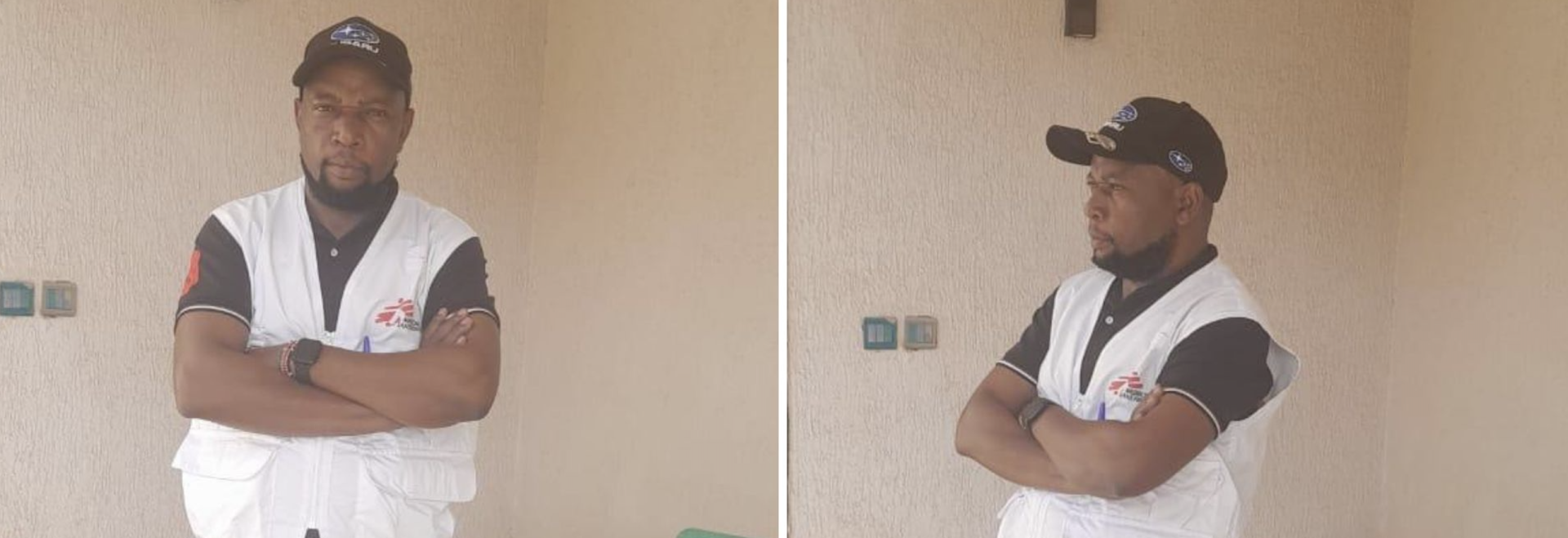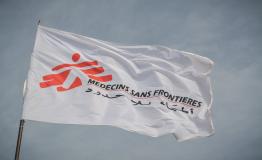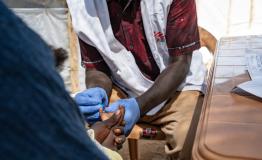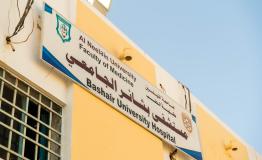I've worked with Médecins Sans Frontières/Doctors Without Borders (MSF) for 20 years now. From the streets of Nairobi in Kenya to the landscapes of Sudan, my journey with MSF has been extraordinary. It all started in 2003. For over two decades, I have served in various capacities in MSF, but it was my assignment in Sudan in 2022 that tested my resolve and commitment to humanitarian work.
I arrived in Khartoum on September 2nd, 2022, to take up the role of deputy coordinator of supply chain. Life in Sudan started well, and it felt hopeful. Despite the frequent security alerts and the ongoing negotiations between the ruling party and the opposition, it felt normal. We went about our daily routines, working and enjoying our time together as colleagues, a semblance of normalcy, albeit always adhering to strict security protocols. Then came April, and with it, the promise of peace. A public holiday was declared for the signing of an agreement on the 13th. It never happened. Little did we know, it would be the last taste of peace for a long time.
It was a Friday, the beginning of the weekend in Sudan. On April 14th, a few of my colleagues and I went out for dinner, a comforting camaraderie amongst strangers in a foreign land. We returned to the guest house, a four-story structure with a rooftop offering a panoramic view of the city. Sleep came easily, oblivious of the storm brewing outside, unaware that our lives were about to change dramatically.
On the morning of April 15th, 2023, at around 8:00 am, I woke up to the sound of gunfire and explosions. At first, I thought I was dreaming. The noise was deafening—gunshots and what sounded like bombs. I was on the fourth floor of our four-story guesthouse, and the urgency in our country director’s voice as he called out, "Stephen, Stephen, come out! Do you have anybody inside?" snapped me into reality. I was scared as I stumbled from the bed, unsure if this was a nightmare or a horrifying reality.
Our Country Director’s voice crackled over the intercom, urging us to the basement. In a daze, I joined the frantic scramble downstairs. We were 17 souls - seven women and ten men - trapped in the basement —in our nightclothes. The basement bunker became our refuge for the next eight days. The country director was instrumental in keeping us informed and cohesive. We supported each other and shared what little resources we had.
Food quickly became a concern. With no way to venture outside safely, we had to make do with what we had. We took turns sneaking up to our rooms to grab whatever food was left in the fridges. Cooking together in the basement became a routine, a way to maintain some normalcy amidst the chaos. We divided ourselves—the women on one side and the men in the gym room. Wi-Fi connection allowed initial communication with families, but soon, silence descended. We agreed with the organisation not to inform them, to avoid creating unnecessary panic. My mother remains blissfully unaware of the ordeal I endured, a shield I hold to protect her.
The feeling of relief was immense, but so was the pain of what I had left behind. An overwhelming mix of exhaustion and gratitude. It wasn't just the bullets whizzing past, but the constant fear, the helplessness, the fear of being trapped in a warzone.Stephen Ayoyi
News trickled in – the airport was bombed, and flights were grounded, cutting off any chance of an air evacuation. Hope dwindled with each passing day.
Seven days later, we received news that an evacuation attempt would be made the next day. We were to leave in an MSF convoy, but our initial attempt was thwarted after just five kilometres. We had to turn back due to safety concerns. Back to the basement, we went in despair.
Finally, on April 21st, we managed to start our journey again. This time, we made it to Al Jazira state, reaching a town called Wad Madani. We spent the night there before continuing south the next day. Our destination was one of our projects, and along the way, we were joined by staff from Omdurman, another project location in Khartoum town. Here, the medical staff, the finance team, and everyone who had been trapped in Khartoum converged. Together, we made our way to Um Rakuba, where we spent another night.
On April 23rd, we continued our journey, crossing the border into Ethiopia. The MSF team in Ethiopia coordinated our movement, ensuring we had the necessary clearance. It was a long drive, about six to seven hours, from the border to Gondar town in Ethiopia. We spent two nights in Gondar before flying to Addis Ababa, where we stayed for a night. On April 27th, we finally left for our homes. I touched down in Nairobi on the morning of April 28th, 13 days later. The feeling of relief was immense, but so was the pain of what I had left behind. An overwhelming mix of exhaustion and gratitude. It wasn't just the bullets whizzing past, but the constant fear, the helplessness, the fear of being trapped in a warzone.
Seeing people kill each other with guns and witnessing the destruction first hand was horrifying. It's one thing to see it in movies but experiencing it is entirely different. Our country director collected several bullet cartridges from the rooftop, a stark reminder of how close we were to danger. Fortunately, our building had a concrete slab, providing some protection from the gunfire. No bombs directly hit our building, but the fear was ever-present.
But this wasn't just about my escape. My heart ached for the people of Sudan, especially the vulnerable – women, children, and the elderly. They remained trapped, facing dwindling resources, a crumbling infrastructure, and a healthcare system under siege.
The ordeal left a profound impact on me. I went to Sudan to help provide medical care to people who need it most, but I found myself in a situation where a stray bullet could have ended my life. The thought of my family never seeing me again was terrifying. MSF provided us with mental health support to cope with the trauma, ensuring we were in better shape to continue our work. MSF, thankfully, continues its vital work. They offer mental health support to their staff, and the patients they treat, a testament to the organization's commitment to well-being.
It's been a year since that harrowing experience, and the situation in Sudan remains dire. Women, children, and the elderly are suffering the most. As humanitarians, our call is to offer help and support, and MSF continues to do everything it can. However, the targeting of medical staff and hospitals is deeply troubling. The international community needs to step up and assist the people of Sudan. Accessing necessities like water, medicine, and food has become a daily struggle. The two warring parties must cease fighting and prioritize the well-being of the Sudanese people. The war has displaced countless families, destroyed properties, and turned Sudan into a shadow of its former self. I hope one day, the Sudanese people, with their strength and determination, will rebuild Sudan.
Despite the horrors I witnessed, my resolve to assist humanity remains unwavering. If MSF calls me to return to Sudan, I will go. My calling is to help those in need, and if the Sudanese people require my assistance, I will be there. This journey has only strengthened my commitment to humanitarian work, reminding me of the resilience of the human spirit and the importance of standing together in times of crisis.
The world must act now. Let us not allow this crisis to fester. This is not just a story of escape, but a call to action.
The gunshots may have stopped for me, but they echo in the ears of the Sudanese people.



